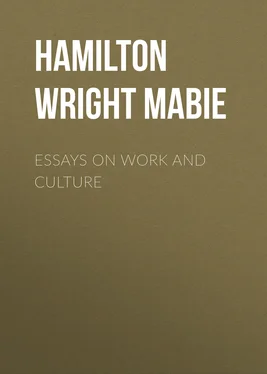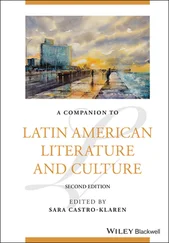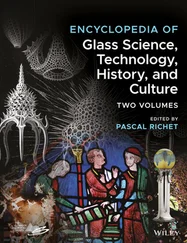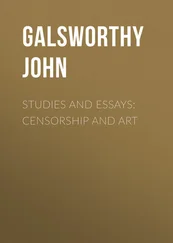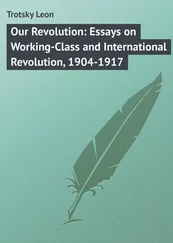Hamilton Wright Mabie - Essays on Work and Culture
Здесь есть возможность читать онлайн «Hamilton Wright Mabie - Essays on Work and Culture» — ознакомительный отрывок электронной книги совершенно бесплатно, а после прочтения отрывка купить полную версию. В некоторых случаях можно слушать аудио, скачать через торрент в формате fb2 и присутствует краткое содержание. Жанр: foreign_prose, foreign_antique, на английском языке. Описание произведения, (предисловие) а так же отзывы посетителей доступны на портале библиотеки ЛибКат.
- Название:Essays on Work and Culture
- Автор:
- Жанр:
- Год:неизвестен
- ISBN:нет данных
- Рейтинг книги:4 / 5. Голосов: 1
-
Избранное:Добавить в избранное
- Отзывы:
-
Ваша оценка:
- 80
- 1
- 2
- 3
- 4
- 5
Essays on Work and Culture: краткое содержание, описание и аннотация
Предлагаем к чтению аннотацию, описание, краткое содержание или предисловие (зависит от того, что написал сам автор книги «Essays on Work and Culture»). Если вы не нашли необходимую информацию о книге — напишите в комментариях, мы постараемся отыскать её.
Essays on Work and Culture — читать онлайн ознакомительный отрывок
Ниже представлен текст книги, разбитый по страницам. Система сохранения места последней прочитанной страницы, позволяет с удобством читать онлайн бесплатно книгу «Essays on Work and Culture», без необходимости каждый раз заново искать на чём Вы остановились. Поставьте закладку, и сможете в любой момент перейти на страницу, на которой закончили чтение.
Интервал:
Закладка:
In this sense work is practically inclusive of every force and kind of life since every real worker puts into it all that is most distinctive in his nature. The moral quality contributes sincerity, veracity, solidity of structure; the intellectual quality is disclosed in order, lucidity, and grasp of thought; the artistic quality is seen in symmetry proportion, beauty of construction and of detail; the spiritual quality is revealed in depth of insight and the scope of relationships brought into view between the specific work and the world in which it is done. In work of the finer order, dealing with the more impressionable material, there are discoverable not only the character and quality of the worker, but the conditions under which he lives; the stage of civilisation, the vigour or languor of vital energy, the richness or poverty of social life, the character of the soil and of the landscape, the pallor or the bloom of vegetation, the shining or the veiling of the skies. So genuinely and deeply does a man put himself into the thing he does that whatever affects him affects it, and all that flows into him of spiritual, human, and natural influence flows into and is conserved by it. A bit of work of the highest quality is a key to a man's life because it is the product of that life, and it brings to light that which is hidden in the man as truly as the flower lays bare to the sun that which was folded in the seed. What a man does is, therefore, an authentic revelation of what he is, and by their works men are fairly and rightly judged.
For this reason no man can live in any real sense who fails to give his personality expression through some form of activity. For action in some field is the final stage of development; and to stop short of action, to rest in emotion or thought, is to miss the higher fruits of living and to evade one's responsibility to himself as well as to society. The man whose artistic instinct is deep cannot be content with those visions which rise out of the deeps of the imagination and wait for that expression which shall give them objective reality; the vision brings with it a moral necessity which cannot be evaded without serious loss. Indeed, the vitality of the imagination depends largely upon the fidelity with which its images are first realised in thought and then embodied by the hand. To comprehend what life means in the way of truth and power, one must act as well as think and feel. For action itself is a process of revelation, and the sincerity and power with which a man puts forth that which is disclosed to him determine the scope of the disclosure of truth which he receives. To comprehend all that life involves of experience, or offers of power, one must give full play to all the force that is in him. It is significant that the men of creative genius are, as a rule, men of the greatest productive power. One marvels at the magnitude of the work of such men as Michelangelo and Rembrandt, as Beethoven and Wagner, as Shakespeare, Balzac, Thackeray, Carlyle, and Browning; not discerning that, as these master workers gave form and substance to their visions and insight, the power to see and to understand deepened and expanded apace with their achievements.
Chapter IV
The Pain of Youth
It is the habit of the poets, and of many who are poets neither in vision nor in faculty, to speak of youth as if it were a period of unshadowed gaiety and pleasure, with no consciousness of responsibility and no sense of care. The freshness of feeling, the delight in experience, the joy of discovery, the unspent vitality which welcomes every morning as a challenge to one's strength, invest youth with a charm which art is always striving to preserve, and which men who have parted from it remember with a sense of pathos; for the morning of life comes but once, and when it fades something goes which never returns. There are ample compensations, there are higher joys and deeper insights and relationships; but a magical charm which touches all things and turns them to gold, vanishes with the morning. In reaching its perfection of beauty the flower must part with the dewy promise of its earliest growth.
All this is true of youth, which in many ways symbolises the immortal part of man's nature, and must be, therefore, always beautiful and sacred to him. But it is untrue that the sky of youth has no clouds and the spirit of youth no cares; on the contrary, no period of life is in many ways more painful. The finer the organisation and the greater the ability, the more difficult and trying the experiences through which the youth passes. George Eliot has pointed out a striking peculiarity of childish grief in the statement that the child has no background of other griefs against which the magnitude of its present sorrow may be measured. While that sorrow lasts it is complete, absolute, and hopeless, because the child has no memory of other trials endured, of other sorrows survived. In this fact about the earliest griefs lies the source also of the pains of youth. The young man is an undeveloped power; he is largely ignorant of his own capacity, often without inward guidance towards his vocation; he is unadjusted to the society in which he must find a place for himself. He is full of energy and aspiration, but he does not know how to expend the one or realise the other. His soul has wings, but he cannot fly, because, like the eagle, he must have space on the ground before he rises in the air. If his imagination is active he has moments of rapture, days of exaltation, when the world seems to lie before him clear from horizon to horizon. His hours of study overflow with the passion for knowledge, and his hours of play are haunted by beautiful or noble dreams. The world is full of wonder and mystery, and the young explorer is impatient to be on his journey. No plan is then too great to be accomplished, no moral height too difficult to be attained. After all that has been said, the rapture of youth, when youth means opportunity, remains unexpressed. No poet will ever entirely compass it, as no poet will ever quite ensnare in speech the measureless joy of those festival mornings in June when Nature seems on the point of speaking in human language.
But this rapture is inward; it has its source in the earliest perception of the richness of life and man's capacity to appropriate it. It is the rapture of discovery, not of possession; the rapture of promise, not of achievement. It is without the verification of experience or the corroborative evidence of performance. Youth is possibility; that is its charm, its joy, and its power; but it is also its limitation. There lies before it the real crisis through which every man of parts and power passes: the development of the inward force and the adjustment of the personality to the order of life. The shadow of that crisis is never quite absent from those radiant skies which the poets love to recall; the uncertainty of that supreme issue in experience is never quite out of mind. Siegfried must meet the dragon before he can climb those heights on which, encircled by fire, his ideal is to take the form and substance of reality; and the prelusive notes of that fateful struggle are heard long before the sword is forged or the hour of destiny has come.
There is no test of character more severe or difficult to bear than the suspense of waiting. The man who can act eases his soul under the greatest calamities; but he who is compelled to wait, unless he be of hardy fibre, eats his heart out in a futile despair. Troops will endure losses when they are caught up in the stir of a charge which would demoralise and scatter them if they were compelled to halt under the relentless guns of masked batteries. Now, the characteristic trial of youth is this experience of waiting at a moment when the whole nature craves expression and the satisfaction of action. The greater the volume of energy in the man who has yet to find his vocation and place, the more trying the ordeal. There are moments in the life of the young imagination when the very splendour of its dreams fills the soul with despair, because there seems no hope of giving them outward reality; and the clearer the consciousness of the possession of power, the more poignant the feeling that it may find no channel through which to add itself to the impulsion which drives forward the work of society.
Читать дальшеИнтервал:
Закладка:
Похожие книги на «Essays on Work and Culture»
Представляем Вашему вниманию похожие книги на «Essays on Work and Culture» списком для выбора. Мы отобрали схожую по названию и смыслу литературу в надежде предоставить читателям больше вариантов отыскать новые, интересные, ещё непрочитанные произведения.
Обсуждение, отзывы о книге «Essays on Work and Culture» и просто собственные мнения читателей. Оставьте ваши комментарии, напишите, что Вы думаете о произведении, его смысле или главных героях. Укажите что конкретно понравилось, а что нет, и почему Вы так считаете.
